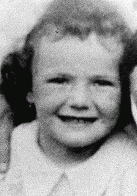You searched for: ghettos
<< Previous | Displaying results 971-980 of 1239 for "ghettos" | Next >>
-
Tomas Kulka
ID CardTomas' parents were Jewish. His father, Robert Kulka, was a businessman from the Moravian town of Olomouc. His mother, Elsa Skutezka, was a milliner from Brno, the capital of Moravia. The couple was well-educated and spoke both Czech and German. They married in 1933 and settled in Robert's hometown of Olomouc. 1933-39: Tomas was born a year and a day after his parents were married. When Tomas was 3, his grandfather passed away and the Kulkas moved to Brno, which was his mother's hometown. On March 15,…
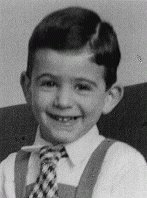
-
Hana Müller
ID CardHana was born to a Jewish family in Prague, the capital of Czechoslovakia. Her father, a metalsmith, made pipes, spouts and gutters for construction companies. Because her mother was frail, Hana was raised by her father and grandmother. She attended a Jewish school through grade five, and later went to business school. 1933-39: In 1933 Hana read about the harrowing treatment of Jews during the Spanish Inquisition and told her grandmother, "Aren't we fortunate that we live in the 20th century in…
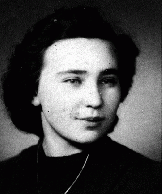
-
Bertha Wolffberg Gottschalk
ID CardBertha was born to Jewish parents in the capital of East Prussia. Her father served on the Koenigsberg city council. In 1887 Bertha married Hugo Gottschalk, and the couple settled in the small town of Schlawe in northern Germany. There, Hugo owned the town's grain mill. The Gottschalks raised their four children in a home near a small stream, ringed by orchards and a large garden. 1933-39: Bertha and her daughter Nanny have moved to Berlin--Hugo passed away in 1934 and they were afraid of the growing…
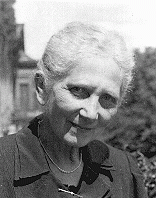
-
A page from the Fenyves family cookbook
ArtifactSteven Fenves (born Fenyves) and his family lived in Subotica, Yugoslavia. His father, Lajos, managed a publishing house and his mother, Klári (Klara), was a graphic artist. In April 1941, Subotica fell under Hungarian occupation. Until May 1944, the Fenyveses lived in one corner of their apartment while Hungarian officers took over the rest of the family’s home. In March 1944, Germany occupied Hungary. In April, Lajos was deported to the Auschwitz camp in German-occupied Poland. Steven, his sister…
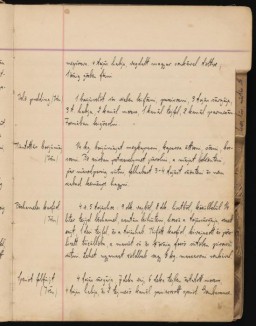
-
Another page from the Fenyves family cookbook
ArtifactSteven Fenves (born Fenyves) and his family lived in Subotica, Yugoslavia. His father, Lajos, managed a publishing house and his mother, Klári (Klara), was a graphic artist. In April 1941, Subotica fell under Hungarian occupation. Until May 1944, the Fenyveses lived in one corner of their apartment while Hungarian officers took over the rest of the family’s home. In March 1944, Germany occupied Hungary. In April, Lajos was deported to the Auschwitz camp in German-occupied Poland. Steven, his sister…
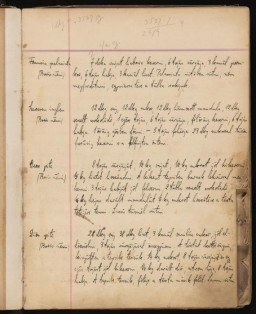
-
Additional page from the Fenyves family cookbook
ArtifactSteven Fenves (born Fenyves) and his family lived in Subotica, Yugoslavia. His father, Lajos, managed a publishing house and his mother, Klári (Klara), was a graphic artist. In April 1941, Subotica fell under Hungarian occupation. Until May 1944, the Fenyveses lived in one corner of their apartment while Hungarian officers took over the rest of the family’s home. In March 1944, Germany occupied Hungary. In April, Lajos was deported to the Auschwitz camp in German-occupied Poland. Steven, his sister…
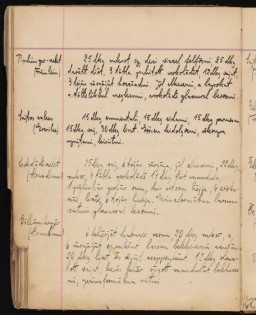
-
Istvan Geroe
ID CardIstvan was born to a Jewish family in the small agricultural city of Torokszentmiklos, about 65 miles from Budapest. Istvan worked for the Hungarian railroads during World War I, and afterwards earned a degree in pharmacology. In the 1920s Istvan married Barbara Nemeth and they settled in Torokszentmiklos. In 1929 the couple had a son, Janos. 1933-39: During the early 1930s, after the onset of the Depression, Istvan helped his father in the family's grain exporting business. In 1933 Istvan and Barbara…
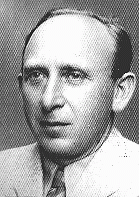
-
Ilona Haas Geroe
ID CardIlona was one of seven children born to a Jewish family in the city of Szeged, about 100 miles south of Budapest. Her father was an accountant. At the turn of the century many of Ilona's father's relatives emigrated to the United States, but Ilona's father decided to stay. Ilona also became an accountant and got a job in Szeged. 1933-39: Ilona's work as an accountant kept her busy but her free time was spent enjoying music and sports. She also began to study English since so many of her relatives had…
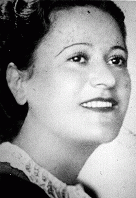
-
Barbara Kertesz Nemeth
ID CardBarbara and her younger sister, Alice, were born to a Jewish family in the town of Hodmezovasarhely in southeastern Hungary. Barbara married Desider Nemeth, a dentist, and the couple settled in the town of Szentes, not far from the city of Szeged. 1933-39: In 1932 Barbara gave birth to a daughter, Maria. She has been busy trying to find a suitable house for them that would double as an office for her husband. Barbara does a lot of volunteer work. She has taken in a young Austrian woman who lives with them…
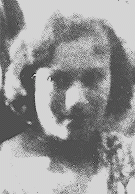
-
Maria Nemeth
ID CardMaria's parents lived in Szentes, a town in southeastern Hungary, located 30 miles from the city of Szeged. Her mother, Barbara, was born in the neighboring town of Hodmezovasarhely, but moved to Szentes when she married. Maria's father was a dentist. 1933-39: Maria was born in 1932. In 1937 her mother took in a young Austrian woman who lived with the family and helped Maria learn German. 1940-44: In March 1944 German troops occupied Hungary. Members of the Hungarian fascist party, Arrow Cross,…
